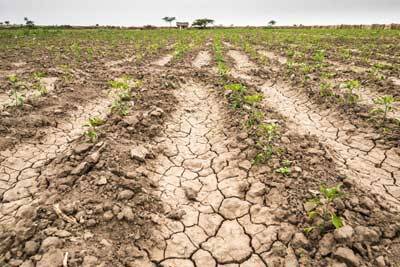Govt aims to strengthen air and water pollution control | Govt taking steps to mitigate climate change effects.
ISLAMABAD - Pakistan is at risk of extreme weather variations and unexpected occurrences. The gradual increase in air and soil temperature will cause water scarcity, while recurring heat waves will intensify the situation and worsen droughts, warned the economic survey for 2022-23.
Climate change mitigation and adaptation is a national priority imperative for Pakistan and the government aims to strengthen air and water pollution control, according to the document that revealed the expected risk of climate change. Since climate change is a global phenomenon identified as one of the biggest threats to humanity in the 21st century, Pakistan is one of the most vulnerable countries to climate change despite being a low carbon emitter.
The document, unveiled by Minister for Finance Ishaq Dar, revealed that the government has developed the national climate Change Policy which is the strategic vision for climate change for Pakistan. The policy actions to combat climate change are further supported by development of the Implementation framework for NDC which will be the major pathway to track the progress in global milieu of climate action. The assessment identifies 13 mitigation actions which if implemented can reduce particulate matter air pollutant emissions by 83 percent and a 21.9 percent reduction in Climate Change 271 total GHG emissions by 2050, says the document.
Pakistan is also currently facing serious air pollution with some urban areas witnessing hazardous pollution levels across the year. “The country faces regular smog episodes in winter, which are linked to high pollutant concentrations, resulting in severe impacts on the environment and public health,” it says. The crop yields have witnessed a reduction due to smog, posing food security challenges and impacting ecosystem production. The National Clean Air Policy provides overarching guidelines and recommendations to improve air quality which may be implemented on a provincial level. However, provinces need to have their own action plans contextualized to ground realities.
“The effects of global climate change in Pakistan are already evident in the form of growing frequency of droughts, floods, erratic weather behaviour, changes in agricultural patterns, reduction in fresh water supply and the loss of biodiversity,” it says. Climate change poses serious challenges to social, environmental and developmental activities, and leads to migration within and across national borders. As per the way forward, the government has developed the national climate Change Policy which is the strategic vision for climate change for Pakistan. The policy actions to combat climate change are further supported by development of the Implementation framework for NDC which will be the major pathway to track the progress in global milieu of climate action, it claims. “Climate and Green Budgeting aims to use budgetary tool to achieve environmental and climate goals. Incorporating green budgeting in the Public Financial Management (PFM) cycle, will be instrumental in tracking and monitoring climate related expenditure in the federal government,” it says.






